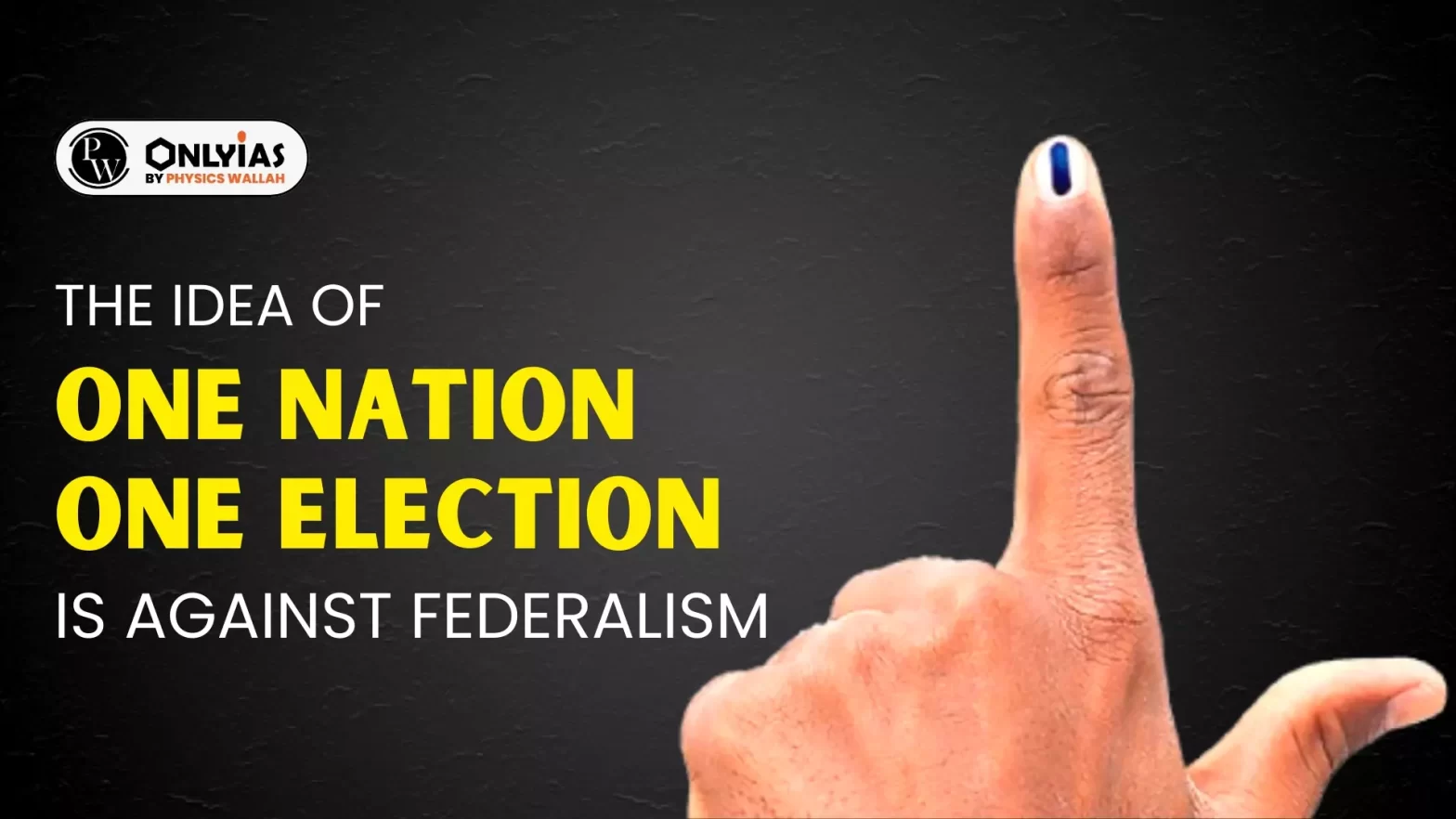![]() 23 Jan 2024
23 Jan 2024

This editorial is based on the news “The idea of one nation one election is against federalism” which was published in The Hindu. This article highlights the potential implications of the “High Level Committee on One Nation One Election” that was set up by the Union Government in September 2023 under the chairmanship of former President of India, Ramnath Kovind.
| Relevancy for Prelims: Election Commission of India, High Level Committee on One Nation One Election, and Federalism.
Relevancy for Mains: One Nation, One Election- Needs, Concerns and Way Forward. |
|---|
| Mains Question: Critically analyze the concept of One Nation One Election, highlighting the benefits and challenges associated with the idea. (10 marks, 150 words) |
|---|
| Must Read | |
| NCERT Notes For UPSC | UPSC Daily Current Affairs |
| UPSC Blogs | UPSC Daily Editorials |
| Daily Current Affairs Quiz | Daily Main Answer Writing |
| UPSC Mains Previous Year Papers | UPSC Test Series 2024 |

<div class="new-fform">
</div>